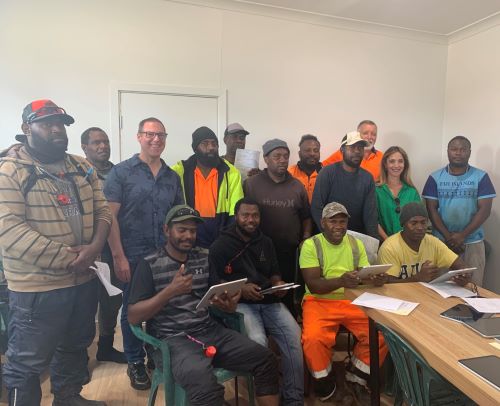17 June 2025

Finance experts are calling on the Federal Government to make it easier for Pacific and Timor-Leste workers that come to Australia to access unclaimed superannuation once their visa expires.
More than 31,000 workers participated in the Pacific Australia Labour Mobility (PALM) scheme in rural and regional Australia in March 2025, helping to fill labour gaps in agriculture, aged care, hospitality and tourism.
PALM workers on a nine-month visa can typically accumulate between $3000-4000 in superannuation before tax, while those on four-year visas can accumulate up to $16,000. It can only be claimed after their visa expires and they’ve returned to their home country, and the process of accessing the funds is difficult and time consuming.
Many PALM workers are unaware that these funds can be repatriated. Plus, complex legislative requirements, administrative red tape, access to computers and the internet, lack of financial capability, and cultural and language barriers, mean that millions of dollars in superannuation go unclaimed.
UniSA Senior Lecturer and Manager of the UniSA Tax Clinic, Dr Rob Whait, says the Australian Tax Office holds millions of dollars of unclaimed superannuation owned to workers from the PALM scheme.
“Completing the required paperwork requires workers to be proficient in English, seeing as the forms aren’t available in other languages. It also requires access to a computer and the internet as the forms can’t be downloaded and need to be completed online, then emailed to the relevant authority,” he says.
“In PALM countries, English is a second language, and the internet is not as readily accessible as it is here. The responsibility for making a claim lies solely with the worker, and there is no obligation for the employer here in Australia to provide information about how workers can claim their superannuation.”
Dr Whait and Dr Connie Vitale from Western Sydney University are recommending policy reforms to make it easier for PALM workers to have their superannuation directly paid into their own super fund in their home country while working in Australia, or have the funds paid as part of their wages in lieu of superannuation.
Analysis by Dr Whait and Dr Vitale of the issue revealed several recommended policy reform options to make it easier for PALM workers to claim their superannuation once their visa expires. It was found that allowing workers to automatically have their superannuation paid directly into their own fund in their home country while working in Australia would be the most logical option.
The two researchers travelled to PALM worker locations across SA and NSW late last year to support workers to prepare their Departing Australia Superannuation Payments (DASP) claims and other documentation before leaving Australia.
He says the recent visits to the PALM worker locations revealed that paying superannuation into a super fund in their own country was not the most preferred option by the workers themselves and that payment added up front to their wages was most desired.
“A leader among the PALM workers said that he would prefer Australia to follow the New Zealand approach where superannuation is not paid at all, and instead, they get all their money paid as wages. Another PALM worker said that the superannuation funds in their country are not being managed in their best interests,” Dr Whait says.
“After visiting PALM worker locations, we were left with the impression that many PALM workers would rather have immediate access to their money to help their families and communities now, rather than wait for retirement. Further research can confirm these preferences and impressions.”
Dr Whait says the PALM scheme is arguably of great strategic importance to Australia since it helps to build and maintain positive relationships with the Pacific region.
“Enhanced economic prosperity arises from PALM workers taking the skills they’ve learnt in Australia back to their own communities, he says.
“PALM workers are collectively leaving many millions of dollars in superannuation unclaimed, but any potential reforms must consider recent political tensions in the Pacific,” Dr Whait says.
“If done correctly, PALM superannuation policy reform presents Australia with an opportunity to rebuild and strengthen relationships with its Pacific neighbours.
Commonwealth Grant funding was provided by the Australian Tax Office and Department of Foreign Affairs and Trade to undertake the PALM Initiative outreach trips.
…………………………………………………………………………………………………………………………
Contact for interview: Dr Rob Whait, Senior Lecturer, UniSA Business and Manager, UniSA Tax Clinic E: Rob.Whait@unisa.edu.au
Media contact: Melissa Keogh, Communications Officer, UniSA M: +61 403 659 154 E: melissa.keogh@unisa.edu.au




